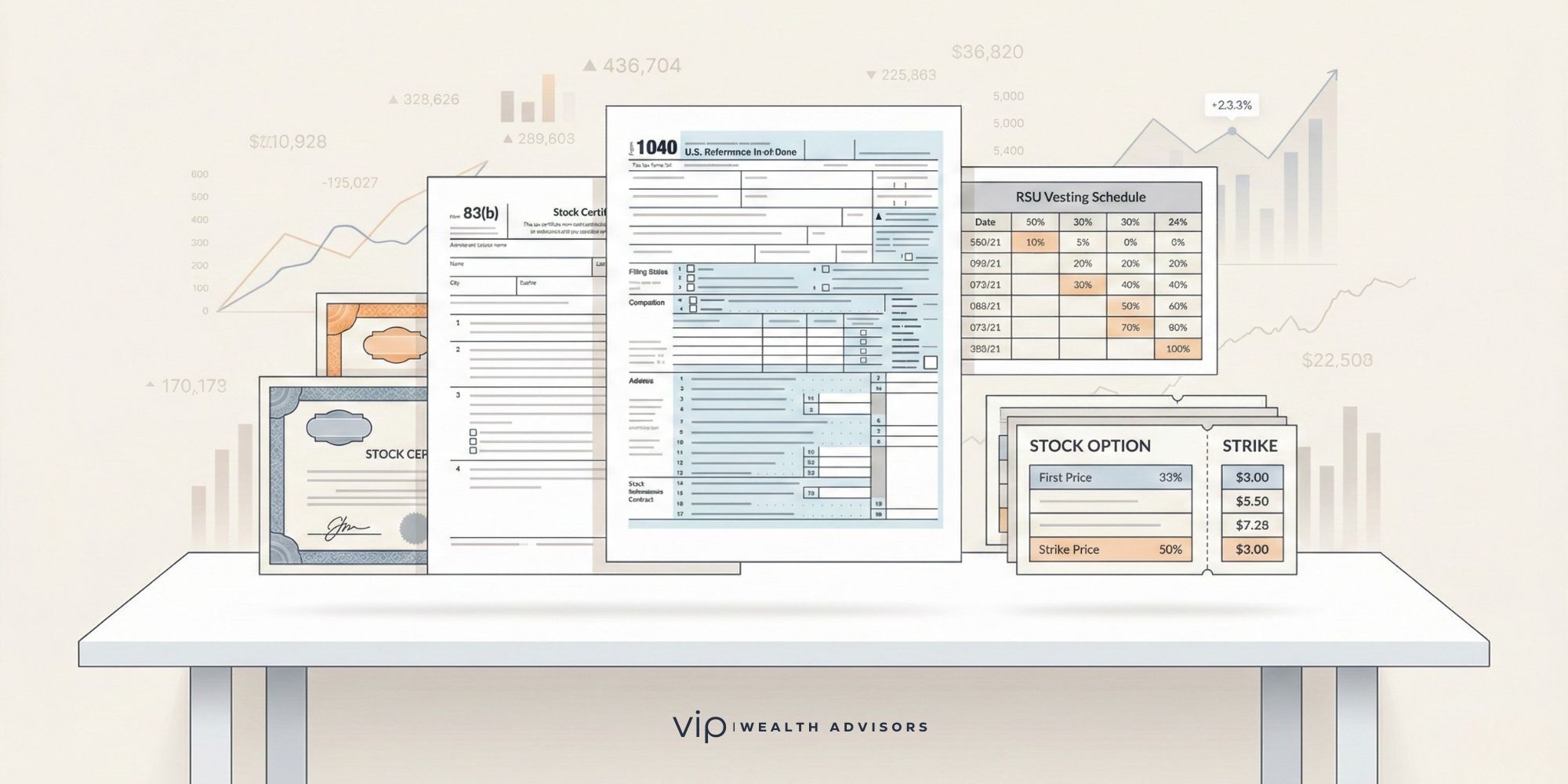Restricted Stock Units (RSUs) hold a unique place in the intricate tapestry of employee compensation. They both testify to your contribution to the company and a potential cornerstone for your financial growth. However, their nuances, particularly regarding taxation, can be a maze. Let’s embark on a comprehensive journey to demystify RSUs, with a sprinkle of examples for clarity.
Unraveling the Mystery of RSUs:
Definition: RSUs are essentially a promise. Your employer commits to giving you shares of the company or the cash equivalent, often contingent upon certain conditions, typically time-based or performance-driven.
Example: Imagine you're granted 2,500 RSUs. These may vest over four years, with 25% vesting each year. This means you'll receive 625 shares at the end of the first year, another 625 in the second year, and so on.
The Taxing Side of RSUs:
Vesting and Taxation: The moment those RSUs vest, they're akin to income you've earned. Picture it like receiving a bonus in shares rather than cash.
Example: If your 625 RSUs vest after the first year and the company's stock is valued at $50 per share, you're looking at $31,250 (625 shares x $50) added to your taxable income for that year.
Tax Implications: Since RSUs are taxed as ordinary income, you must know your tax bracket. For higher earners, this could push you into a higher bracket, increasing your tax liability.
Withholding Considerations: Your employer might opt to withhold some shares to cover taxes. However, relying solely on this could leave you with a tax gap, especially if the stock price fluctuates.
Best Practices: Steering Your RSUs Ship:
- Sell All on Vest: Given the immediate tax implications and the risk of over-concentration in your company's stock:
- Sell the shares upon vesting. This not only covers your tax bill but also mitigates the risk associated with holding a large position in a single stock.
- Diversification is Key: If a significant chunk of your wealth is tied up in RSUs, consider broadening your investment horizons. Consider diversifying across sectors, geographic regions, or asset classes like bonds or real estate.
- Regular Reviews: Companies evolve. So should your strategy. Periodically review your RSU plan, looking for any policy changes or new opportunities.
- Anticipate Future Needs: With RSUs vesting at different times and potentially varying in value, anticipate your financial inflows and outflows. Planning can prevent any unwelcome financial surprises.
Wrapping Up:
RSUs, with their blend of promise and complexity, demand a nuanced approach. By understanding their mechanics, from vesting schedules to tax implications, and by adopting best practices, you can harness their potential while safeguarding your financial well-being.
For tailored advice tailored to your unique circumstances, our door is always open. Here's to making informed, strategic choices on your journey to financial prosperity!








